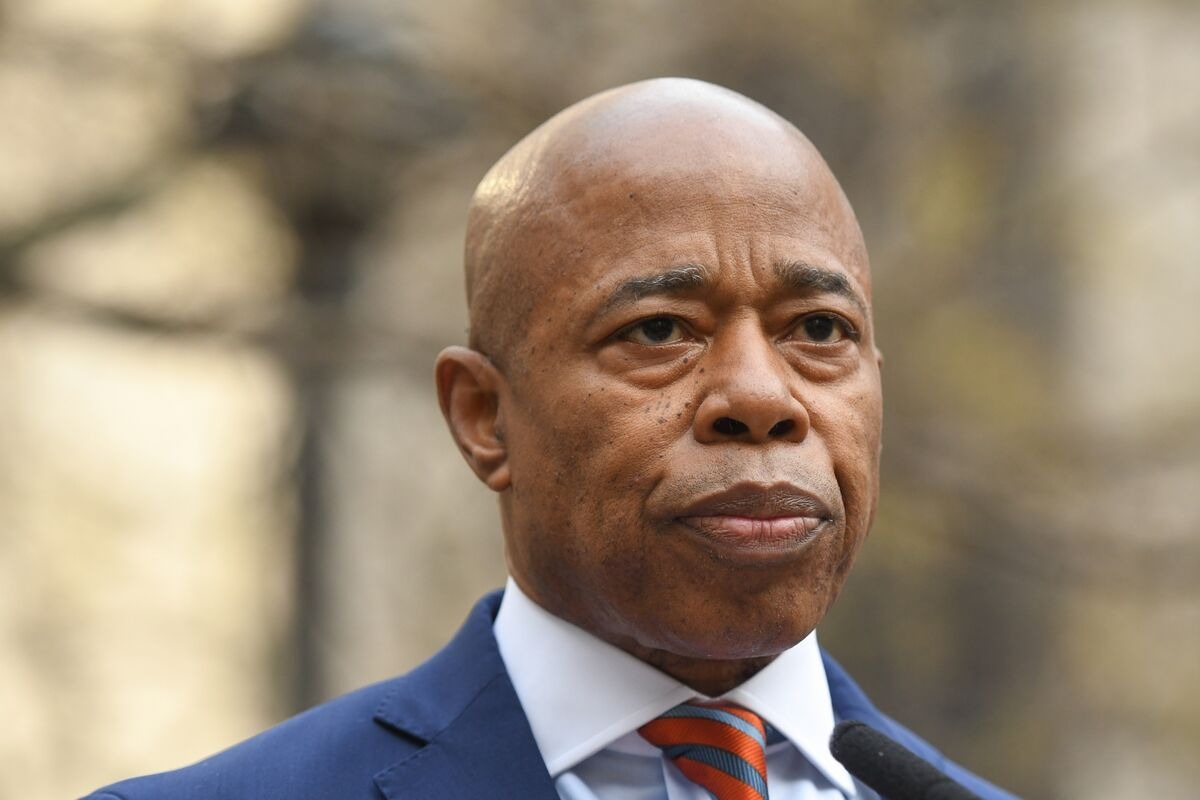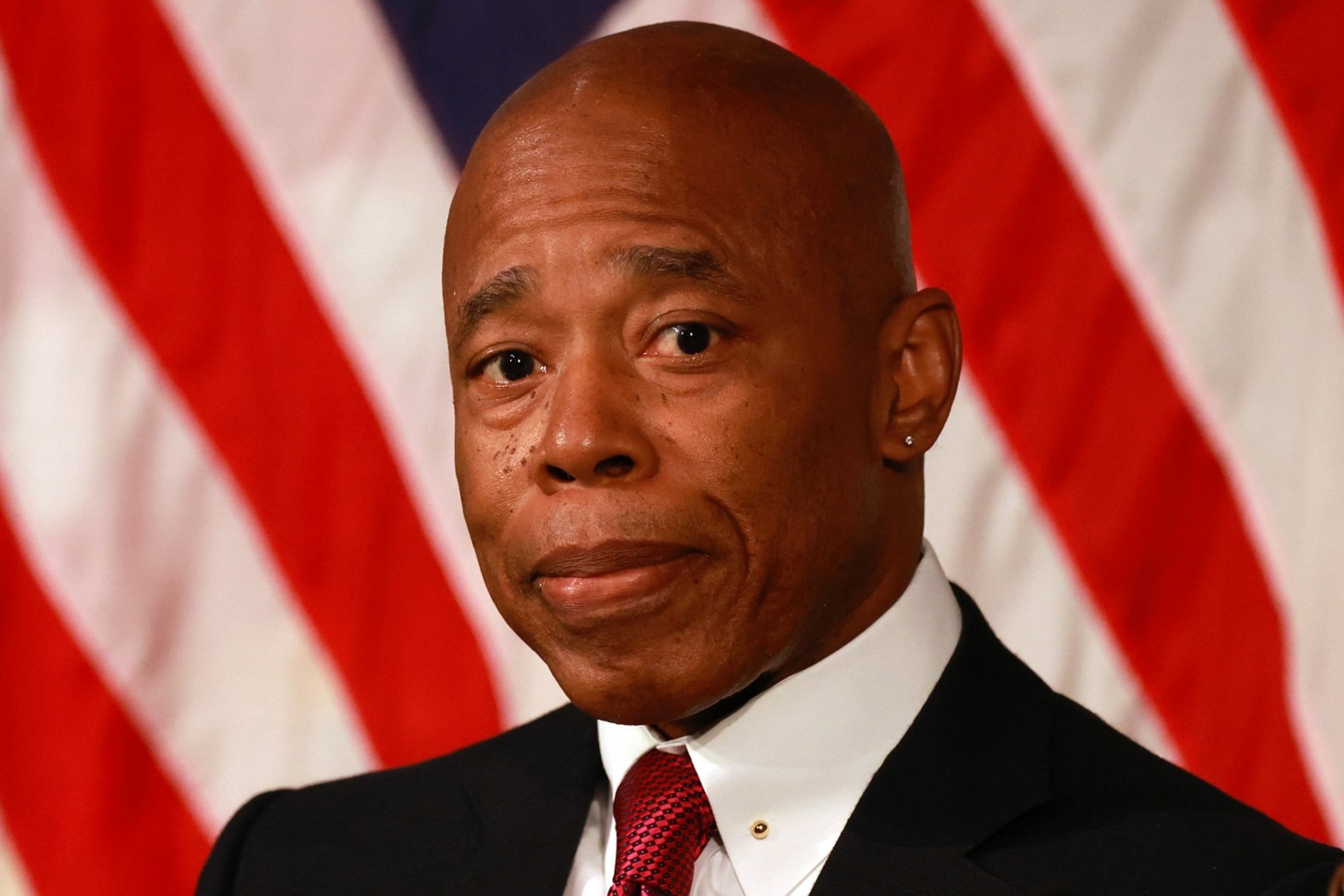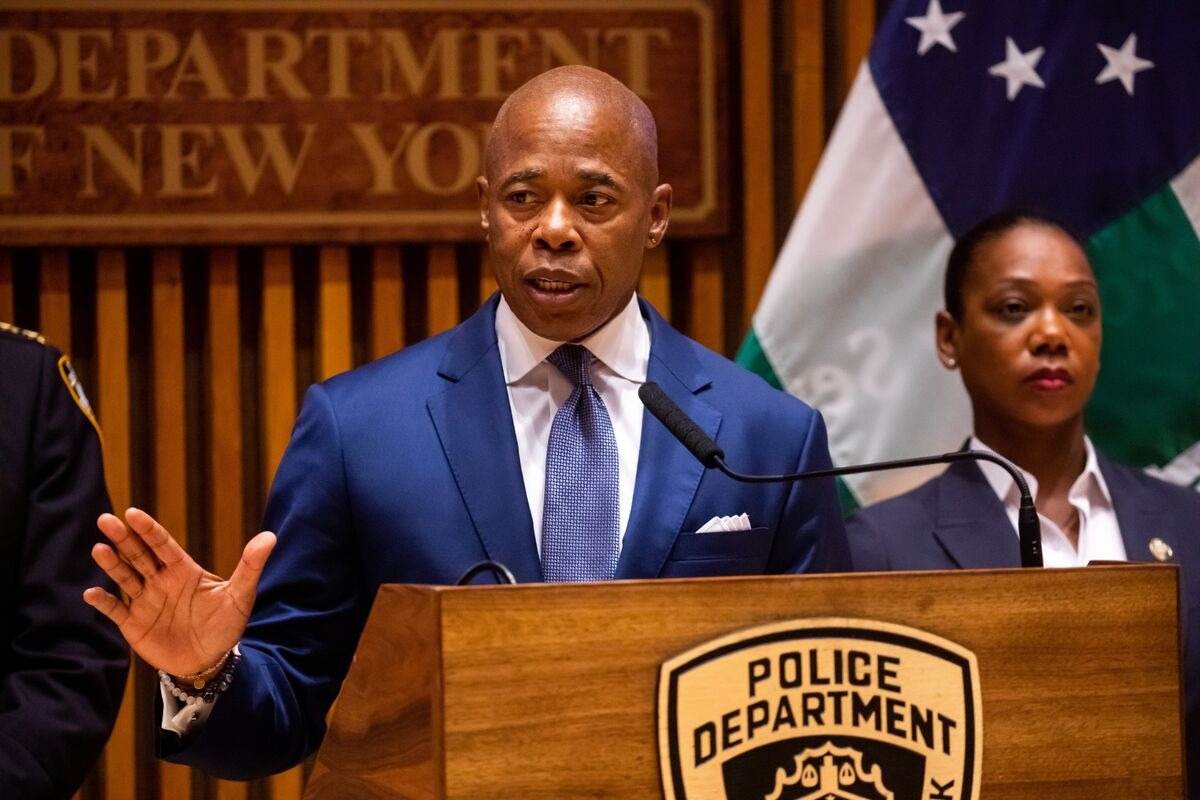Large-scale pro-Palestine protests at Columbia University have entered their sixth day, with hundreds of students camping outside the campus gates as police keep watch.
New York Mayor Eric Adams (D) stated that the protests have remained mostly peaceful, attributing any disruptions to “outside agitators.” He pledged additional resources to assist Columbia in managing the protests, including security measures to ensure only students can access the campus.
“We need to address this before it escalates further. Let’s not wait until it’s out of control,” Adams emphasized. The demonstrations intensified following the arrest of over 100 students by university authorities last Friday. Similar protest encampments have emerged on campuses across the country in recent days.

Eric Adams (Credits: Bloomberg.com)
In the middle of mounting criticism from various quarters, including students and politicians, Columbia President Minouche Shafik faces growing discontent over her handling of the protests.
The Protests at Columbia Have Captured Political Interest
On Tuesday, Barnard College reportedly suspended more than 50 students for participating in the demonstrations, sparking outcry from those affected. Isra Hirsi, the daughter of Rep. Ilhan Omar (D-Minn.), expressed uncertainty about her housing and access to essentials.
In addition to denouncing U.S. military support for Israel and advocating for a permanent cease-fire in the Israel-Hamas conflict, protesters are demanding Columbia’s divestment from companies operating in Israel and increased financial transparency regarding the university’s endowment.
“This is about ending genocide and urging Columbia to divest from the violent Zionist settler entity,” said one protester, identified only as W. “We are acting on our principles and will continue to do so until Columbia takes action.”
The protests at Columbia have drawn political attention, with visits from Gov. Kathy Hochul (D), a group of Jewish Democrats, and a planned visit from Speaker Mike Johnson (R-La.).

Mayor Eric Adams (Credits: NBC News)
Critics have labeled the protests as antisemitic, prompting rebuke from the Biden administration and calls for Shafik’s resignation from New York’s Republican representatives. However, many Jewish students are participating in the demonstrations, with some holding a Passover Seder at the protest site.
One Jewish student protester pushed back against allegations of antisemitism, asserting, “I am the Jewish future.” They emphasized that their actions are a rejection of generational trauma and do not represent hate or bigotry.
In response to criticism, protest leaders issued a statement rejecting claims of advocating violence or antisemitism. They emphasized the diverse backgrounds of participants and denounced attempts to disrupt their solidarity.
Shafik expressed sadness over the protests’ escalation and called for dialogue and compromise to address the underlying issues. She urged all parties to engage in constructive discussions rather than resorting to disruptive actions.























